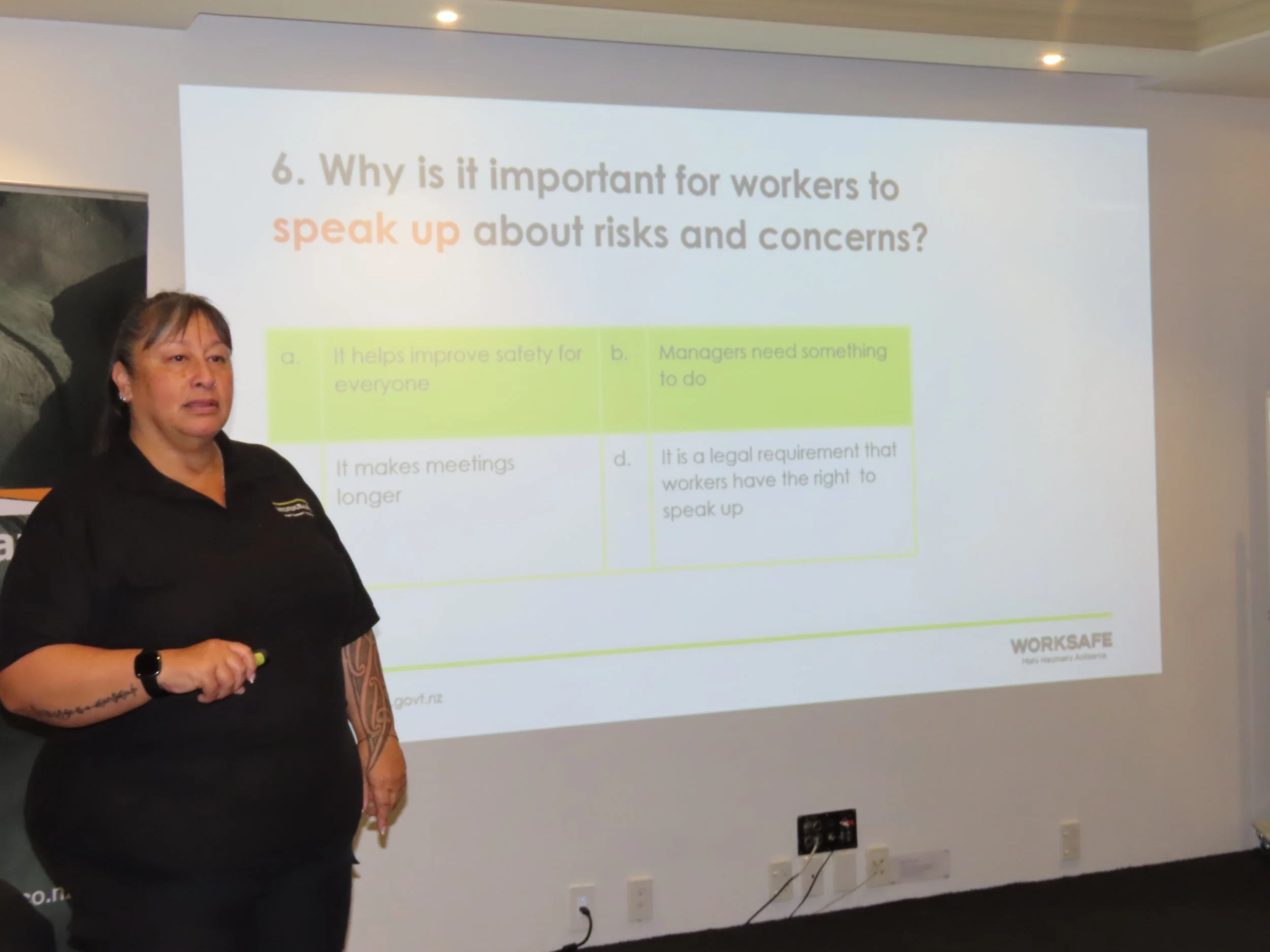Sleepless nights over safety eased for rural contractors
Rural contractors were relieved and encouraged by key presentations from WorkSafe at the four 2025 RCNZ roadshows.
Sherry Peck was one of the two WorkSafe inspectors attending the Christchurch roadshow.
RCNZ CEO Andrew Olsen says the presentations were sought because he knows how feeling unprepared for a WorkSafe visit and/or wider H&S fears were keeping members awake at night.
“We brought WorkSafe to last year’s conference; then we did the Fatigue campaign and after that began working to get WorkSafe to the roadshows.”
He says the messages from the four sets of WorkSafe inspectors who attended the roadshows were consistent and encouraging.
“We were told they are looking or critical risks – those that could cause the most harm and the discussions you have with workers (if you have them) about minimising those risks. Also, with farmers about any risks they may see on their property – a.k.a overlapping duties.”
“When issues arise, it usually comes down to communication. Where things are unclear, there’s room for confusion, errors and risk.”
Andrew says the WorkSafe inspectors attending the roadshows say if they visit a rural contractors yard they want to a focus on issues including:
• Hazardous substances – how these are stored, handled and used. WorkSafe often asked to come and assess H&S issues in this area of contracting
• When/where work happens
• Remote and emergency work and procedures
• No go zones
• Overlapping duties
• Vehicles and plant maintenance
• Welding
“Yes, they do take enforcement action but only when it’s needed and infringement notices are only rarely used. As one inspector said: “We are not out there to sting you. We’re there to ensure everyone gets home safe.”
He says another WorkSafe inspector told a roadshow that when she was made aware of a contractor who had three sleepless nights prior to her visit that it made her sick to her stomach to hear that. WorkSafe Inspections generally take place every 2–3 years.
Rural contractors were told that workers also have duties to take reasonable care for their own health and safety and that others. If you are a worker with a question or a concern, WorkSafe encourages you to speak up.
They expected to see evidence of thorough training on use of vehicles and inductions for new staff but counselled against hiring H&S advisors who provide you with a ‘telephone book’ of paperwork which simply collects dust.
Andrew Olsen says the message to his members on compliance was clear.
“It doesn’t have to be complicated. It’s whatever works for you and our workers and your business. And at each roadshow, the WorkSafe inspectors handed out their business cards and invited RCNZ members to give them a call if they had an area of concern.
I can tell you that there were a lot of relieved and pleased members hearing those messages and that offer,” says Andrew Olsen.

